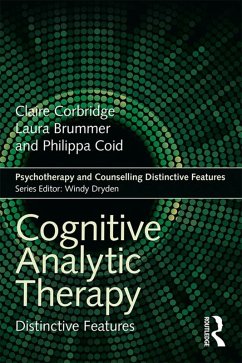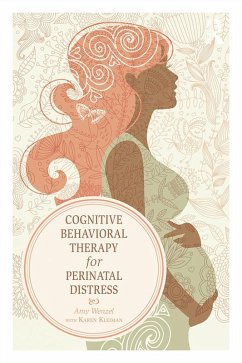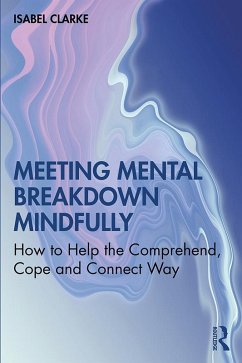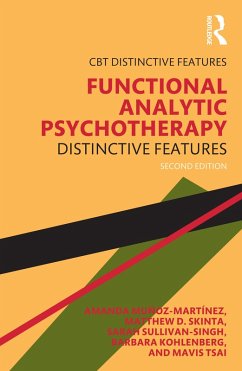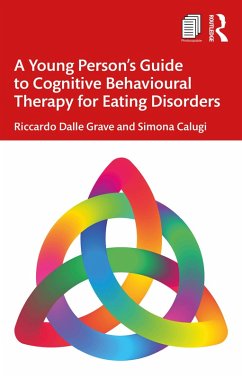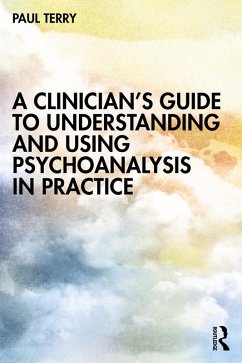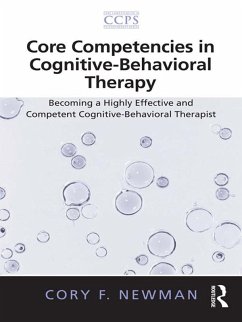
A Beginner's Guide to Cognitive Analytic Therapy (eBook, ePUB)
Practitioner and Service User Perspectives

PAYBACK Punkte
14 °P sammeln!
This text provides an accessible, reader-friendly guide to conducting Cognitive Analytic Therapy (CAT) on a one-to-one basis, developed in partnership with service users who have lived experience of CAT.The book will cover the applications of CAT in clinical practice including: assessment; introducing CAT; the main concepts and how to build a therapeutic relationship; mapping; the middle phase and the integration of other models; monitoring; developing exits; the ending and saying goodbye. Grounded in CAT theory, the content will be ordered sequentially, as one would conduct the therapy, and w...
This text provides an accessible, reader-friendly guide to conducting Cognitive Analytic Therapy (CAT) on a one-to-one basis, developed in partnership with service users who have lived experience of CAT.
The book will cover the applications of CAT in clinical practice including: assessment; introducing CAT; the main concepts and how to build a therapeutic relationship; mapping; the middle phase and the integration of other models; monitoring; developing exits; the ending and saying goodbye. Grounded in CAT theory, the content will be ordered sequentially, as one would conduct the therapy, and will feature first-hand accounts from CAT-experienced service users including their own perspectives on the model and the impact it had on their wellbeing.
A straightforward, beginner's introduction to practicing CAT, this book will be useful for trainee practitioners, assistant and trainee clinical/counselling psychologists, and those practising CAT-informed therapy in supervision.
The book will cover the applications of CAT in clinical practice including: assessment; introducing CAT; the main concepts and how to build a therapeutic relationship; mapping; the middle phase and the integration of other models; monitoring; developing exits; the ending and saying goodbye. Grounded in CAT theory, the content will be ordered sequentially, as one would conduct the therapy, and will feature first-hand accounts from CAT-experienced service users including their own perspectives on the model and the impact it had on their wellbeing.
A straightforward, beginner's introduction to practicing CAT, this book will be useful for trainee practitioners, assistant and trainee clinical/counselling psychologists, and those practising CAT-informed therapy in supervision.
Dieser Download kann aus rechtlichen Gründen nur mit Rechnungsadresse in A, B, BG, CY, CZ, D, DK, EW, E, FIN, F, GR, HR, H, IRL, I, LT, L, LR, M, NL, PL, P, R, S, SLO, SK ausgeliefert werden.






